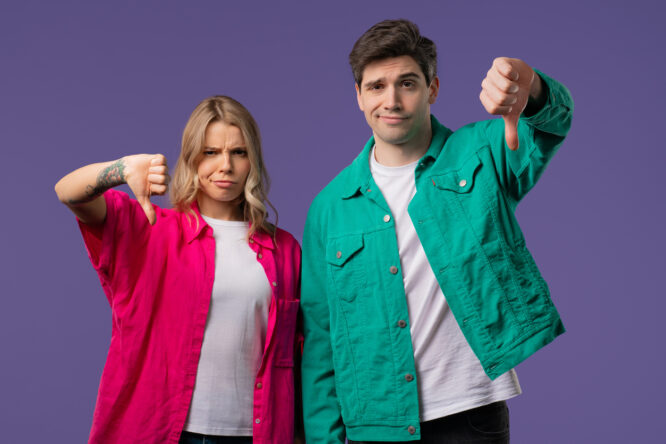Most people mean well when they interact with someone who has a disability, but good intentions don’t always translate into helpful words.

There are certain phrases that get thrown around constantly that might seem supportive or kind, but actually come across as patronising, invasive, or just plain awkward. People with disabilities aren’t asking for special treatment or walking on eggshells—they just want to be treated like regular humans having normal conversations. Here are some common phrases that tend to make interactions weird or uncomfortable, even when they’re said with the best intentions.
1. “You’re so inspiring!”
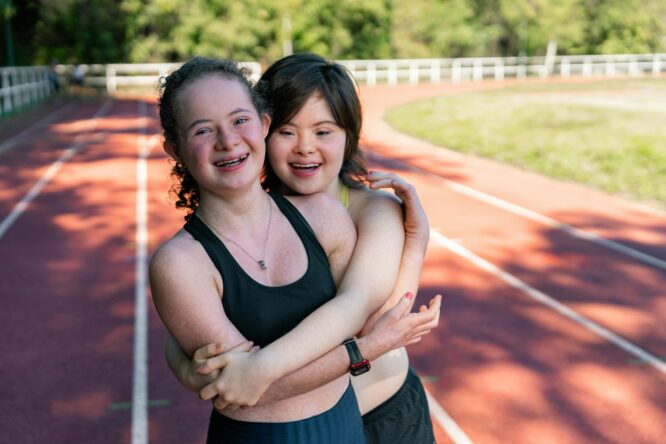
This one gets said a lot, usually to people who are just going about their daily lives like everyone else. Getting groceries, going to work, or eating at a restaurant aren’t inspirational activities—they’re just normal human things that everyone does. When you call someone inspiring for doing basic life tasks, it implies that you think their life is so tragic that mundane activities deserve praise.
Most people with disabilities aren’t trying to inspire anyone; they’re just living their lives. Save the “inspiring” comments for when someone actually does something inspirational, like starting a charity or climbing a mountain. Existing with a disability isn’t a motivational poster—it’s just life.
2. “What happened to you?”

This question usually comes from curiosity, but it’s basically asking someone to share their medical history with a stranger. You wouldn’t ask someone without a visible disability about their health conditions, so why is it okay to ask someone with a disability about theirs? Some people are comfortable sharing, but many find it invasive and inappropriate.
If you’re genuinely interested in getting to know someone, focus on normal conversation topics like their interests, work, or hobbies. Their disability might come up naturally if you become friends, but it’s not small talk material for first meetings.
3. “I would never be able to handle what you’re dealing with.”

This phrase might seem sympathetic, but it’s actually pretty insulting. It suggests that having a disability is inherently miserable and that the person must be suffering constantly. Most people with disabilities have adapted to their situation and aren’t walking around feeling sorry for themselves or thinking their lives are unbearable.
Everyone adapts to their circumstances, whether it’s a disability, a difficult job, or any other life challenge. You probably could handle it if you had to, just like they did. This comment makes their normal life sound like a tragedy, when it’s probably just different from yours.
4. “Everything happens for a reason.”

This is one of those phrases that’s meant to be comforting, but often comes across as dismissive or even cruel. It implies that someone’s disability serves some cosmic purpose or that they somehow needed this experience. While some people do find meaning in their challenges, others just see their disability as a random medical thing that happened.
Not everyone believes that suffering has a purpose, and suggesting that their disability was somehow meant to be can feel like you’re minimising their struggles or implying they should be grateful for it. Some things just happen without deeper meaning, and that’s okay too.
5. “At least you don’t have to worry about…”
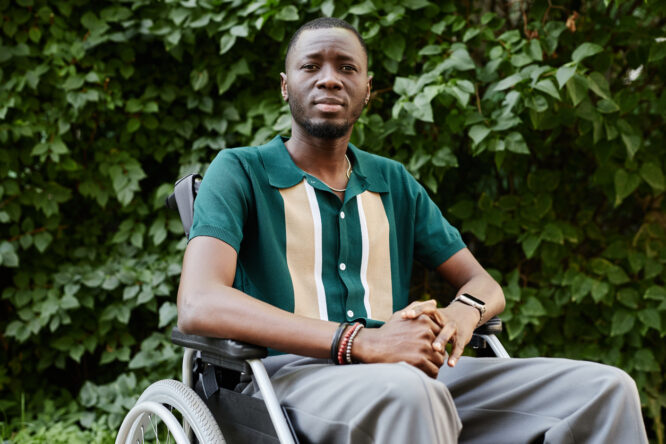
Trying to find silver linings in someone’s disability usually backfires pretty spectacularly. Comments like “At least you don’t have to stand in long lines” or “At least you get good parking” suggest that their disability comes with perks that somehow make up for the challenges. These supposed benefits rarely outweigh the actual difficulties they face.
Most people with disabilities would gladly give up those “advantages” to not have their disability. They’re not consolation prizes, and pointing them out can make it seem like you think their situation isn’t that bad because they get a few minor conveniences.
6. “You don’t look disabled.”

This comment usually comes from a place of confusion rather than malice, but it’s problematic for several reasons. Many disabilities aren’t visible, and suggesting that someone doesn’t “look” disabled implies there’s a specific way disabled people are supposed to appear. It can also make people feel like they need to prove their disability is real.
Invisible disabilities are incredibly common, and many people struggle with conditions that significantly impact their lives without being obvious to observers. Don’t assume you can tell who has a disability based on appearance alone, and don’t make people feel like they need to justify their experiences to you.
7. “I’m praying for you.”

While this comes from genuine care and concern, it can be uncomfortable for people who don’t share your religious beliefs or who don’t see their disability as something that needs divine intervention. Some people with disabilities are perfectly content with their lives and don’t feel like they need prayers or healing.
If you want to express care and support, consider asking what would actually be helpful rather than assuming prayer is what they want or need. Practical support or just normal friendship often means more than spiritual offerings from people they barely know.
8. “Have you tried…?”

Unless you’re a medical professional treating this person, they’ve probably already explored their options more thoroughly than you can imagine. People with disabilities often become experts on their own conditions and have likely researched, tried, or considered most treatments available. Suggesting remedies, supplements, or treatments usually isn’t helpful.
Even if you heard about something that worked for someone else, every situation is different. Medical advice from friends and strangers can be frustrating because it implies they haven’t been trying hard enough to get better or that there’s an obvious solution they’ve missed.
9. “God only gives you what you can handle.”

This religious sentiment might be comforting to some people, but it can be really harmful to others. It suggests that people who struggle with their disabilities or have bad days aren’t strong enough or faithful enough. It also implies that their disability is some kind of test or burden that was specifically chosen for them.
Many people don’t find comfort in the idea that their suffering was divinely ordained, and some days they really can’t handle what they’re dealing with. That’s normal and human, not a failure of character or faith.
10. “You’re so brave.”
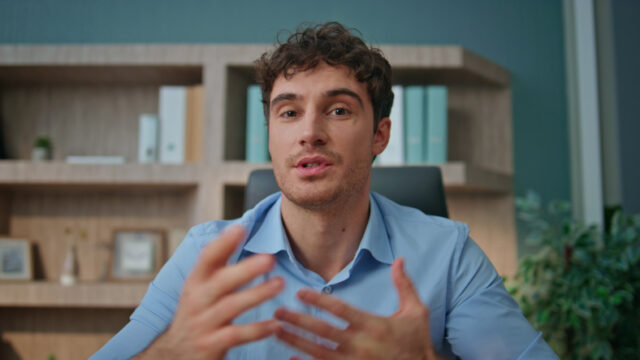
Similar to calling someone inspiring, labelling someone as brave for simply existing with a disability can feel patronising. Most people with disabilities aren’t being brave—they’re just living their lives because that’s what people do. Getting up, going to work, and participating in life aren’t acts of courage; they’re just normal human activities.
Calling someone brave for basic life activities suggests that you think their existence is so difficult that they deserve praise for not giving up. While life with a disability can certainly have challenges, most people aren’t performing acts of heroism by going about their day.
11. “I wish I had your positive attitude.”

This puts pressure on people to always be upbeat and optimistic, even when they’re having a rough day. People with disabilities are allowed to have bad moods, feel frustrated, or be negative sometimes without being seen as ungrateful or weak. They’re human beings with the full range of emotions, not perpetual sources of inspiration.
This comment also implies that having a positive attitude is the key to dealing with disability, which isn’t always realistic or possible. Some days are genuinely hard, and expecting constant positivity is unfair and unrealistic for anyone.
12. “Is there anything I can do to help?”

While this seems thoughtful, it often puts the burden on the person with a disability to educate you about what they might need. If they’re just trying to have a normal conversation or complete a routine task, they might not want to think about accommodations or assistance right then.
If you genuinely want to help, pay attention to the situation and offer specific assistance if it seems appropriate. Better yet, just treat them normally unless they actually ask for help. Most of the time, they’re managing just fine on their own.
13. “I could never use a wheelchair/cane/etc.”

This comment suggests that using mobility aids is somehow shameful or tragic. For many people, these tools provide independence and freedom rather than representing limitations. Expressing horror or pity about assistive devices reinforces negative stereotypes and can make people feel bad about things that actually improve their lives.
Mobility aids are just tools, like glasses or hearing aids. You probably wouldn’t say “I could never wear glasses” to someone who needs them to see. Treat other assistive devices with the same casual acceptance you’d give any other helpful tool.
14. “You’re lucky you get disability benefits.”
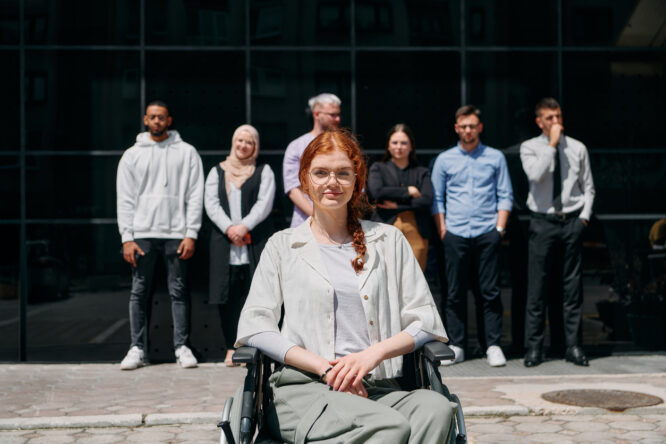
Disability benefits are usually barely enough to cover basic needs, and the process of getting them is often lengthy, complicated, and humiliating. Suggesting that someone is “lucky” to receive them implies that they’re getting some kind of sweet deal rather than basic support they need to survive.
Most people would rather be able to work and support themselves fully than rely on disability benefits. These programs exist because society recognises that some people need support, not because they’re giving out free money to lucky recipients.
15. “You seem so normal!”

This backhanded compliment suggests that having a disability means you can’t be “normal,” whatever that means. It implies surprise that someone with a disability can be funny, intelligent, or interesting. People with disabilities are just people—they have personalities, interests, and opinions that exist completely separate from their medical conditions.
Being disabled doesn’t make someone abnormal; it just means they experience the world differently in some ways. Expressing surprise that they’re a complete human being with a full range of traits and abilities is unintentionally insulting.
16. “I totally understand because my [minor injury/temporary condition].”

Comparing a broken leg or temporary back pain to someone’s permanent disability minimises their experience and suggests you think the situations are equivalent. While temporary injuries can certainly be challenging, they’re fundamentally different from long-term disabilities that affect someone’s entire life and daily routines.
You don’t need to relate to someone’s experience to show empathy or have a meaningful conversation. It’s okay to acknowledge that you can’t fully understand what they’re going through while still being supportive and interested in their perspective.


